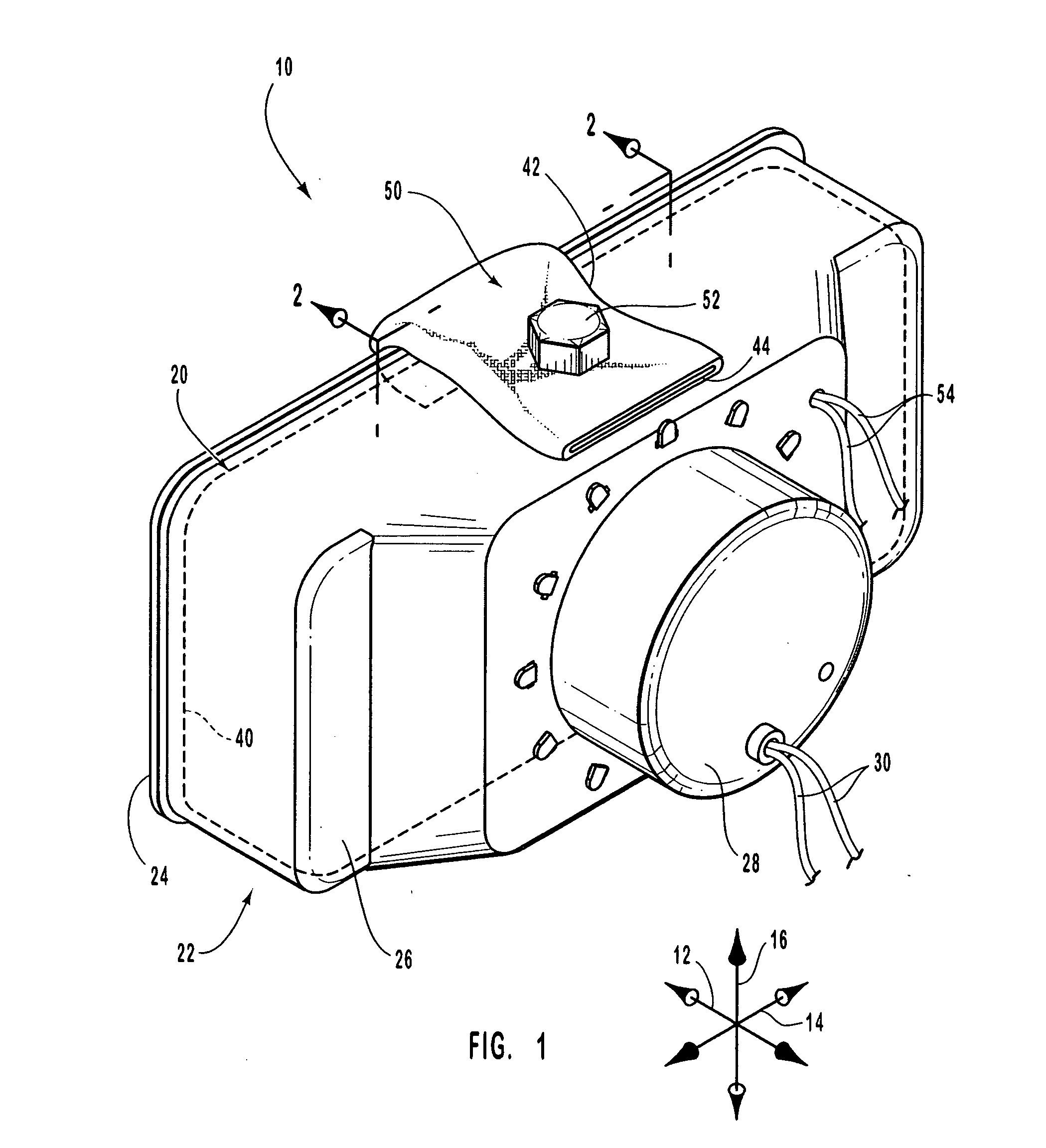Active venting apparatus and method for airbag systems
a technology of active venting and airbag system, which is applied in the direction of pedestrian/occupant safety arrangement, vehicular safety arrangement, transportation and packaging, etc., can solve the problems of comparatively less venting, limited reliability, and limited use of known variable venting system, so as to quickly adapt the stiffness of the cushion
- Summary
- Abstract
- Description
- Claims
- Application Information
AI Technical Summary
Benefits of technology
Problems solved by technology
Method used
Image
Examples
Embodiment Construction
[0037] The presently preferred embodiments of the present invention will be best understood by reference to the drawings, wherein like parts are designated by like numerals throughout. It will be readily understood that the components of the present invention, as generally described and illustrated in the figures herein, could be arranged and designed in a wide variety of different configurations. Thus, the following more detailed description of the embodiments of the apparatus, system, and method of the present invention, as represented in FIGS. 1 through 7, is not intended to limit the scope of the invention, as claimed, but is merely representative of presently preferred embodiments of the invention.
[0038] The present invention utilizes a number of physical principles to enhance the cost-effectiveness and operation of airbag modules. For example, principles of momentum and acceleration are used to determine the stiffness of the cushion required to protect a vehicle occupant in a...
PUM
 Login to View More
Login to View More Abstract
Description
Claims
Application Information
 Login to View More
Login to View More - R&D
- Intellectual Property
- Life Sciences
- Materials
- Tech Scout
- Unparalleled Data Quality
- Higher Quality Content
- 60% Fewer Hallucinations
Browse by: Latest US Patents, China's latest patents, Technical Efficacy Thesaurus, Application Domain, Technology Topic, Popular Technical Reports.
© 2025 PatSnap. All rights reserved.Legal|Privacy policy|Modern Slavery Act Transparency Statement|Sitemap|About US| Contact US: help@patsnap.com



